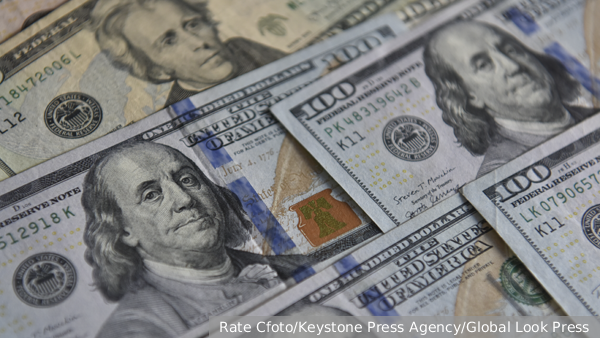
Is Part of the World De-Dollarising?
By Claudia Luna Palencia
Is this current weakness just another passing episode, as has happened on other occasions since the end of Bretton Woods? Is it a structural trend caused among other things by the fact that China has been selling its dollars for years, after becoming the main holder of debt denominated in the greenback? Is it collateral to the invasion of Ukraine and the West's sanctions against Russia?
Last year, Brazil's President Luiz Inácio Lula da Silva put on the table to his South American counterparts and Mercosur partners the need for their own currency, something like a South American euro. A currency that would leave the dollar aside.
Brazil is a member of the BRICS, together with China, India, Russia and South Africa, which together account for almost 50% of the world economy, and for some time now they have been defending in various forums the need to de-dollarise their economies in favour of other currencies. Russia, with Russian dictator Vladimir Putin, is openly asking his Chinese counterpart, Xi Jinping, to move more quickly to use the yuan as a new currency to replace the dollar. And China is being accommodating.
Together they are a powerful group, recalls Anwar Zibaoui, an expert in economics and international affairs, and they account for 45% of the world's population.
In a clever way, Chinese diplomacy is adding support, creating a kind of amalgam united by a common interest: to receive investment flows, generate economic wealth and make nations prosper.
Jinping, moreover, managed to get the BRICS to accept Argentina, Egypt, Iran, Ethiopia, Saudi Arabia and the United Arab Emirates into its ranks, de facto members since 1 January.
And we should not lose sight of the fact that the New Development Bank (NDB), based in Shanghai, has been created with the contribution of the BRICS Central Banks and emerges as an alternative to the traditional international financial organisations that use the dollar to fund other countries.
In other words, a new consensus is being created before our eyes, which could be parallel to the one that has prevailed since the end of the Second World War and which the collateral consequences of the Russian invasion of Ukraine would have contributed to detonate.
I find it very interesting that the US bank JP Morgan warns of "some signs of emerging de-dollarisation" that are undeniable in the global economy.
The dollar's share of foreign exchange trading volumes remains just below historical highs of 88% and its use in trade turnover has not changed much in the last two decades.
However, in foreign exchange reserves held by Central Banks around the world, for example, its share has fallen to an all-time low of 58%. Central Banks are selling dollars to strengthen their local currencies.
Note that the largest share of any global currency falls further when accounting for gold which now comprises 15% of reserves compared to 11% five years ago.
But, also, the BRICS are weighing in, along with other major commodity exporters, who are trying to ride out the economic storm unleashed by the invasion of Russian troops into Ukraine and the consequent sanctions imposed.
For example, Saudi Arabia and China have begun talks to settle oil sales to China no longer in dollars... but in yuan; and, also, Brazil and China have announced the gradual introduction of a yuan clearing arrangement for part of the trade between the two countries, while China and Russia are also doing a significant part of their trade in yuan.
A basket of currencies, of world currencies, is no longer a dream. The monopoly of the dollar is breaking up as envisaged by Nobel Prize winner Robert Mundell, precisely one of the mentors of the euro, which began to be introduced in several EU economies as early as 1999 and is now used by twenty countries out of the twenty-seven that make up the EU.
There is also a subjective part that cannot go unnoticed in economics: this American hegemony is no longer seen as such in many sectors and a part of the world has lost respect for it; the same part of the world that is no longer intimidated by the greenback and that sees weakness in its weakness, weakness from the White House.
Atalayar
Source: www.atalayar.com
